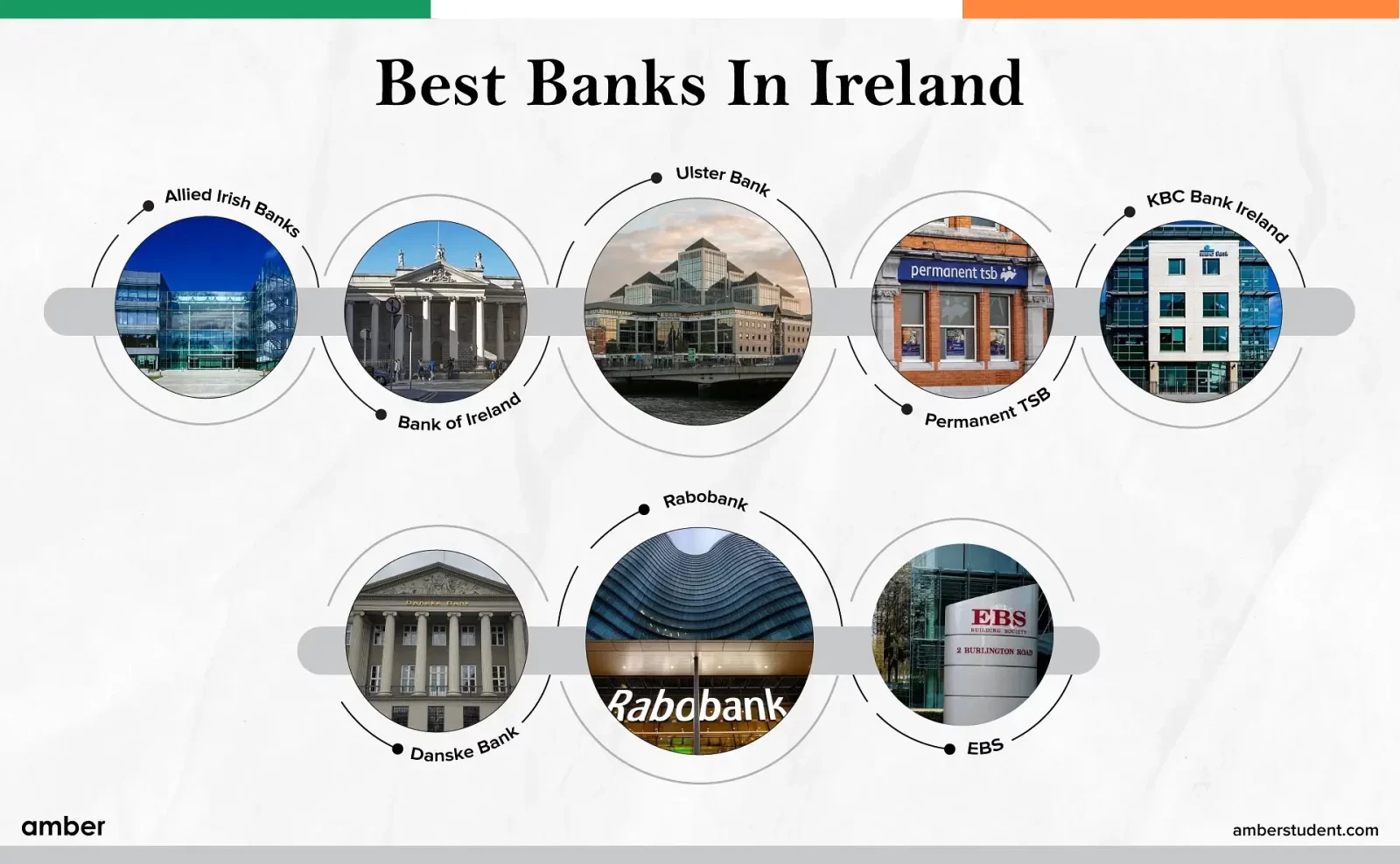
Famous banking companies in Ireland
Ireland has a robust banking industry with several prominent banks that play key roles in the country’s economy. Ireland’s banking sector comprises both traditional Irish banks and international institutions with strong presences there. Here’s an overview of some of the most famous banking companies in Ireland.
1. Allied Irish Banks (AIB)
One of Ireland’s “Big Four” banks, Allied Irish Banks, commonly referred to as AIB, is a significant player in the financial sector. Established in 1966 from the merger of three banks, AIB offers a wide range of financial services, including personal and business banking, loans, mortgages, and investment services. Headquartered in Dublin, AIB operates numerous branches across Ireland and Northern Ireland and has expanded internationally. The bank has a substantial customer base, holding a strong reputation for stability and service quality in Irish banking.
2. Bank of Ireland
Founded in 1783, the Bank of Ireland is one of the oldest and largest financial institutions in the country. It’s another member of the Big Four and plays a vital role in both retail and corporate banking sectors. Headquartered in Dublin, the Bank of Ireland has an extensive branch network across Ireland, providing a comprehensive array of services including personal and business loans, mortgages, savings accounts, and insurance. It also offers asset management services, catering to a wide variety of customer needs. The bank has a rich history and is closely associated with Irish financial growth.
3. Permanent TSB
Permanent TSB, a retail bank based in Dublin, is known for its commitment to personal banking services. It was established in its current form in 1986, but the bank’s origins trace back over a century. It’s popular among Irish customers for its accessible mortgage products and personal loans. Permanent TSB primarily serves the Irish market and has maintained a focus on providing retail and small business banking services. With a reputation for customer service and local outreach, Permanent TSB has become an essential part of Ireland’s banking landscape.
4. Ulster Bank (Republic of Ireland Operations)
Ulster Bank has been a significant banking institution in Ireland and Northern Ireland since its founding in 1836. Originally based in Belfast, it expanded to serve the Republic of Ireland, gaining a prominent market share. It provides services such as mortgages, personal loans, credit cards, and various business banking services. However, Ulster Bank announced in 2021 its decision to withdraw from the Irish market, which marked a significant change. Many of its customer accounts have been transferred to other banks, but its legacy in Irish banking remains noteworthy.
5. KBC Bank Ireland
KBC Bank Ireland, a subsidiary of Belgium-based KBC Group, has been operational in Ireland since 1978. The bank offers personal banking services such as savings accounts, mortgages, and loans. It differentiated itself through a strong digital presence, focusing on online and mobile banking. In 2021, however, KBC announced plans to exit the Irish market, transferring many of its accounts to other institutions, including Bank of Ireland. This move has been part of a larger consolidation in the Irish banking sector, yet KBC’s impact on Irish banking has been significant, particularly in digital innovation.
6. Citibank Europe
As part of Citigroup, Citibank Europe has a substantial presence in Ireland and is headquartered in Dublin. It primarily caters to large corporations and high-net-worth clients, focusing on corporate banking, investment banking, and treasury services. Citibank Europe has grown as a strategic hub for Citigroup’s European operations, especially following the UK’s departure from the European Union. The presence of Citibank in Ireland underscores Dublin’s importance as a financial center in Europe, especially for institutions needing access to the EU market.
7. Danske Bank (Ireland Operations)
Danske Bank, headquartered in Denmark, has had operations in Ireland, offering various corporate and investment banking services. Though it ceased retail banking operations in Ireland in 2014, it remains influential through corporate and asset management services. Danske Bank’s Irish operations highlight the integration of Ireland into the broader European banking network, serving multinational corporations and investment funds.
Conclusion
Ireland’s banking landscape is marked by traditional Irish banks like AIB and Bank of Ireland, which cater to a broad customer base, and the influence of international banks like Citibank Europe and Danske Bank. Recent market exits by Ulster Bank and KBC reflect a shift in the Irish banking sector towards fewer but larger players, consolidating Ireland’s position as both a domestic banking hub and a gateway for European financial services.





Leave a Reply